
Emergency Dentist — Manchester, NH
Don’t Put Off Urgent Care When You Need It!
Dental emergencies rarely get better on their own, which means the longer you wait to get a serious dental issue treated, the worse it will likely become. At Webster Dental Associates of Manchester, we do everything we can to see you as soon as possible so you can get out of discomfort and manage a dental emergency effectively. If you’re experiencing a toothache, broken or knocked-out tooth, or other dental-related emergency, call us today so Dr. Golparvar can see you for emergency dentistry in Manchester, NH!
Why Choose Webster Dental Associates of Manchester for Emergency Dental Care?
- Same-Day Appointments Available
- Same-Day CEREC Crowns In-House
- Dentist and Team Dedicated to Your Comfort
What to Do in a Dental Emergency

- Set up your same-day appointment: When a dental emergency strikes, don’t wait to give our office a call. We’ll do our best to get you seen the same day that you contact us and at the very least provide first-aid tips over the phone to help you manage your emergency in the meantime.
- Completing an emergency exam: Once you arrive at our dental practice, Dr. Golparvar will perform an emergency exam. From there, he’ll confirm if digital X-rays are needed as well to learn more about your symptoms and to determine which treatment would best help you address your emergency.
- Discussing our findings: After completing the exam, we’ll have a much better idea of what’s going on inside your mouth. We’ll create a treatment plan that details the services we believe will best alleviate your symptoms and prevent your emergency from worsening. We’ll also explain the costs and timeline associated with your care so you can make an informed decision beforehand.
- Get the care you need quickly: Golparvar is trained to perform a wide variety of dental treatments, including dental fillings, crowns, root canal therapy, and tooth extractions.
The Most Common Dental Emergencies
Dental emergencies have a tendency to fall into two categories and usually include the following issues below. Regardless of the cause of your urgent dental issue, we ask that you call our dental office right away to schedule an appointment and get helpful advice from our team. Until you arrive, here’s what you can do to improve your situation.
Understanding the Cost of Treating Dental Emergencies

Every dental emergency is going to have its own unique cost depending on the severity of the issue. For example, if you only have a minor toothache caused by a small cavity, a cleaning and dental filling may be all you need to treat your emergency. However, if you have an infected tooth, you will likely need root canal therapy and a dental crown, which are more extensive and therefore a bit pricier. Either way, the last thing you should do is put off care solely because of worries about the cost of emergency dentistry in Manchester, NH. Dr. Golparvar and his team will do everything they can to create a reasonable treatment plan that fits within your budget.
Learn MoreEvery Dental Emergency Is Different
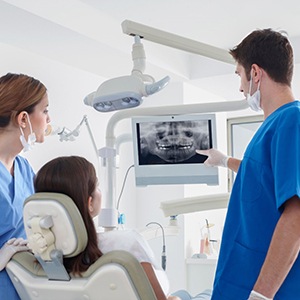
Until Dr. Golparvar has examined your mouth and determined the cause and extent of your specific emergency, it’s impossible for us to give you an accurate estimate of your treatment costs. Because there are countless possibilities of dental emergencies and the procedures needed to address them, there isn’t a fixed price involved. Generally, the higher the severity, the more it will cost to treat.
Before we go through with your treatment, we’ll focus on getting you out of pain. That way, you’ll be clear-headed when making any financial decisions.
Does Dental Insurance Cover Dental Emergencies?

Luckily, most dental insurance providers understand that accidents happen, so they will typically cover one emergency exam each year. Additionally, procedures that are often associated with dental pain – such as root canal therapy, crowns, and tooth extractions – are covered at around 40-80% in most cases.
Of course, everyone’s insurance plan is different, and deductibles and annual maximums also come into play. Our team can help you navigate your level of dental insurance coverage to help you minimize your out-of-pocket expenses. We’re in-network with Delta Dental, Delta Premier, and many plans from BlueCross BlueShield, but we’ll file claims for most out-of-network plans as a courtesy to you.
Other Options for Making Dental Emergencies Affordable

If your insurance plan doesn’t quite cover your treatment costs, or you don’t have insurance, we have another way of fitting the care your smile needs into your budget: CareCredit third-party financing. We can help you apply for one of many flexible plans that let you pay for your care in small monthly installments. Most of these plans have very low or even no interest rates!
Taking Care of Your Teeth Can Save You Money
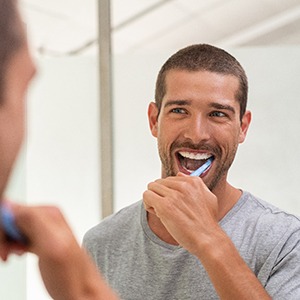
One easy way to reduce your long-term dental care costs is to take a proactive approach to your oral health. Other than sudden accidents or injuries, most dental emergencies occur due to unchecked decay, infection, or damage that has steadily worsened over time. These issues can be prevented from becoming full-scale emergencies with daily oral hygiene and six-month dental checkups. If you invest in routine dental visits, you could potentially save thousands of dollars on emergency dental care over the course of your lifetime!
Another way to save money is to call your emergency dentist in Manchester as soon as you notice a problem with your teeth or gums. You might be tempted to avoid scheduling an appointment out of fear that your treatment will be expensive, but don’t put off getting the care you need. Not only will you be in pain for much longer, but your emergency could worsen and end up requiring even costlier procedures later on.
Keys to Preventing Dental Emergencies

By their very nature, dental emergencies happen when you least expect it. Looking back, it often seems as though there was nothing you could have done to prevent it. However, most dental emergencies – with the exception of sudden injuries or accidents – are actually avoidable if you take the right precautions. If you’d like to reduce the risk of another dental emergency ruining your day, keep these five basic tips in mind.
Learn MoreKeep Up with Your Routine Dental Appointments

Even if your teeth and gums feel perfectly fine, you still need to visit with Dr. Golparvar for a checkup at least once every six months. Many dental emergencies are the result of oral health issues that started out minor but eventually worsened into a painful, urgent problem. During your regular exams, Dr. Golparvar can check your mouth for early warning signs of cavities, infections, and other potential emergencies. If he finds anything concerning, he can treat it right away, long before it causes you discomfort.
Maintain Good At-Home Oral Hygiene Habits
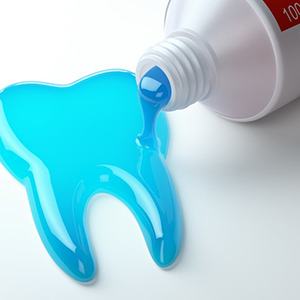
Daily brushing and flossing are essential in preventing dental emergencies. These habits remove lingering food debris, plaque, and bacteria that accumulate in your mouth over the course of the day. Left behind, these particles could cause infection within your gums or teeth, both of which can be severely painful. Use a fluoridated toothpaste to brush your teeth twice a day for two minutes each time. Also, try to floss at least once a day to clean the spaces between your teeth.
Be Careful with Your Diet

It’s no secret that sugary foods and drinks can damage your teeth, but acidic items are often just as harmful. For example, even though diet soda is sugar-free, its high acidity can wear down your tooth enamel and increase the risk of fracture, decay, and painful sensitivity. Additionally, avoid biting down too forcefully on extremely hard foods like nuts, as it could chip or crack a tooth.
Wear a Mouthguard to Protect Your Teeth
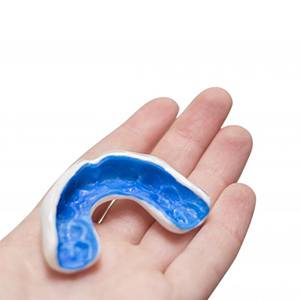
To protect your teeth from breakage, you’ll need to wear a mouthguard if you play sports and/or grind your teeth while you sleep. Athletic mouthguards reduce the impact of injury in the event of a sports-related blow to the face or jaw, while nightguards create cushioning between the upper and lower teeth to prevent chronic wear and tear from grinding.
Never Use Your Teeth as Tools
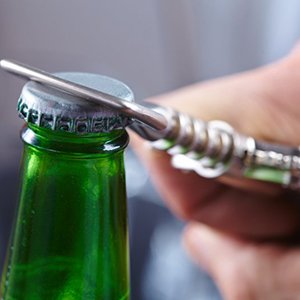
If you’re like many people, you might have felt tempted to save a few seconds by opening a bottle, container, or package with your teeth instead of the tool designed for the job. However, this can wear down your teeth over time, and it could all too easily break your tooth. You’d end up having to spend much more than a few seconds at our emergency dental office in Manchester! Take the time to grab the bottle opener, box cutter, scissors, or whichever tool will get the job done instead of risking your smile.
Dental Emergency FAQs

Dental emergencies often seem to happen out of the blue, so it’s completely understandable that you have some unanswered questions. It can be difficult to know exactly what to do when you’re put into this stressful, often painful position, so we’re here to help! Here are the answers to some of the most common questions we receive about dental emergencies in Manchester. If you don’t see the information that you’re looking for below, just give us a call. We’d be happy to help you navigate your situation and get you scheduled for an urgent appointment.
Learn MoreWill my toothache go away on its own?
Toothaches don’t typically go away on their own. Because of this, it’s best to schedule a checkup with a dentist as soon as possible. There are all sorts of potential causes for a toothache, so you should rule them out with a professional as soon as possible. Doing this can help you catch underlying issues before they become more serious.
How should I sleep with tooth pain?
It can be difficult to get quality sleep while you’re dealing with a toothache. Until you are able to contact your dentist in the morning, keep your head elevated. This will prevent blood from rushing to your head and intensifying your toothache. Additionally, take over-the-counter medication as needed and avoid foods that are particularly acidic, cold, or hard right before bed. A cold compress can also help to dull some of the discomfort.
Should I visit the emergency room first for dental emergencies?
Unfortunately, most emergency rooms are unable to address dental emergencies effectively. However, there are a few main exceptions. You should head directly to the ER if you have experienced a jaw fracture or dislocation, serious cut or laceration to the face or mouth, or an abscess or infection that’s swollen to the point where it’s affecting your breathing or swallowing. In pretty much any other situation, you should see a dentist instead.
Should knocked-out teeth be placed in water?
Water can be used to rinse a knocked-out tooth if there is dirt on it, but you shouldn’t place the tooth itself in water. This is because water can damage the root surface cells of teeth, reducing the chances of it being able to be placed back into the socket. Instead, do your best to place it back into your open socket. If you are unable to do so, you can try milk, saline solution, or saliva.
Preventive Dentistry Restorative Dentistry Dental Implants Cosmetic Dentistry Invisalign Gum Disease Treatment Sleep Apnea Treatment View Our Services